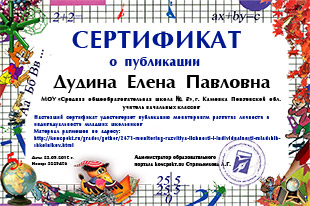Конспект урока английского языка в 9 классе "Современные устройства"
Цели урока:
- ознакомить учащихся с новинками технического прогресса, использованием гаджетов учащимися и их сверстниками;
- совершенствование навыков аудирования, грамматических навыков, письменной речи;
- развивать память, логическое мышление, языковую догадку.
Ход урока
Организационный момент
Приветствие учащихся. Проверка посещаемости и готовности к уроку.
Формулирование темы урока, цели и задачи
Now we're going to listen to an expert who is talking about... about what? Let's listen to him.
What is the topic of our lesson? (Тема урока)
What are we going to speak about today? (Цель)
What are we going to do during our lesson? (Задачи)
Фонетическая зарядка
Введение новой лексики по теме "Современные устройства"
social networks - социальные сети.
Many people visit chat rooms and have social network accounts.
to get in touch - оставаться на связи
The Internet helps me to get in touch with my friends who live abroad.
to improve language skills - улучшать языковые навыки
The Internet helps me to improve my language skills.
face-to-face communication - непосредственная коммуникация, живое общение
With the invention of personal computer children do spend less time with their friends and often avoid face-to-face communication.
to lag behind - отставать (в учебе)
Some children do not do their homework, miss classes and lag behind their schoolmates.
to surf the Internet - бродить по Интернету, переходить с одного сайта на другой
When I come back home, I usually have dinner and then surf the net for a while.
Речевая зарядка
Answer my questions:
- Do you use any social networks? What are they?
- Does your friend always get in touch?
- How often do you surf the net?
- What do you prefer: face-to-face communication or chatting in social networks?
- Who of your classmates lag behind?
- Can you improve your language skills using gadgets?
Основная часть урока. Стадия осмысления
We live at the age of informational technologies. Every day we use different types of gadgets.
What gadgets do you use regularly?
Прием "Фишбоун"
Работа с верхним рядом "рыбы" - факты.
|
1. a mobile phone 2. a tablet computer 3. a laptop (a computer) 4. an MP3 player 5. a digital camera 6. a TV 7. a game console 8. a camcorder (видеокамера) |
a) send messages and communicate with friends b) organize information c) store information d) listen to music e) take pictures f) play video games g) watch TV programs h) make films |
Работа с нижним рядом "рыбы" - причины. Учащиеся по очереди высказываются о функциях гаджетов с опорой на схему при соблюдении общей линии повествования группового монолога.
I use .... to...
What gadget can't you live without? Why?
Развитие навыков аудирования
Понимание основного содержания прослушанного текста
- The speaker describes the arrest of a criminal.
- The speaker describes a crime.
- The speaker gives a weather forecast.
- The speaker talks about road accidents.
- The speaker talks about a well-known celebrity.
- The speaker talks about a fashion.
|
A |
B |
C |
D |
E |
|
|
|
|
|
|
Развитие грамматических навыков употребления нужной морфологической формы слова на основе коммуникативно-значимого текста
I know that the Internet is the most popular means of communication and mass media.
Let's read some facts about it and do grammar ex-ce.
The majority of us use the Internet 1) ... than we watch TV. Everyone, including 2) ... friends, parents, and even grandparents are on Facebook, use Twitter and download music from the net. But how much do you really know about the Internet revolution?
There are many amazing interesting facts about the birth, the evolution and the history of the Internet. Let’s look at how it all 3) ... Here is a list of fun facts about the Internet that you probably 4) ... yet.
It 5) ... the TV 13 years 50 million to get users, while the Internet reached the same number in just 5 years. Sweden is the country with the 6) ... number of Internet users.
It is about 78%. Over 250 billion messages 7) ... every day, and 80% of them are spam. Statistics say that if you 8) ... an active Internet user, then you spend about 25 hours online every month. If the website MySpace were a country it would be the 9) ... largest in the world.
Развитие навыков письма
Актуализация имеющихся знаний по теме "Современные устройства"
You have received a letter from your English-speaking pen friend, Emma.
…My mum still can’t download new music into her mobile phone. She says when she was young, there were no mobile phones at all. I just can’t imagine that!…
What do you use your mobile phone for?
What other gadgets do you find the most important for you?
How can you improve your language skills using the Internet?
Итоги урока
Do you find our lesson useful and interesting? (ответы учащихся)
Уou h/t will be to write the letter to Emma.




